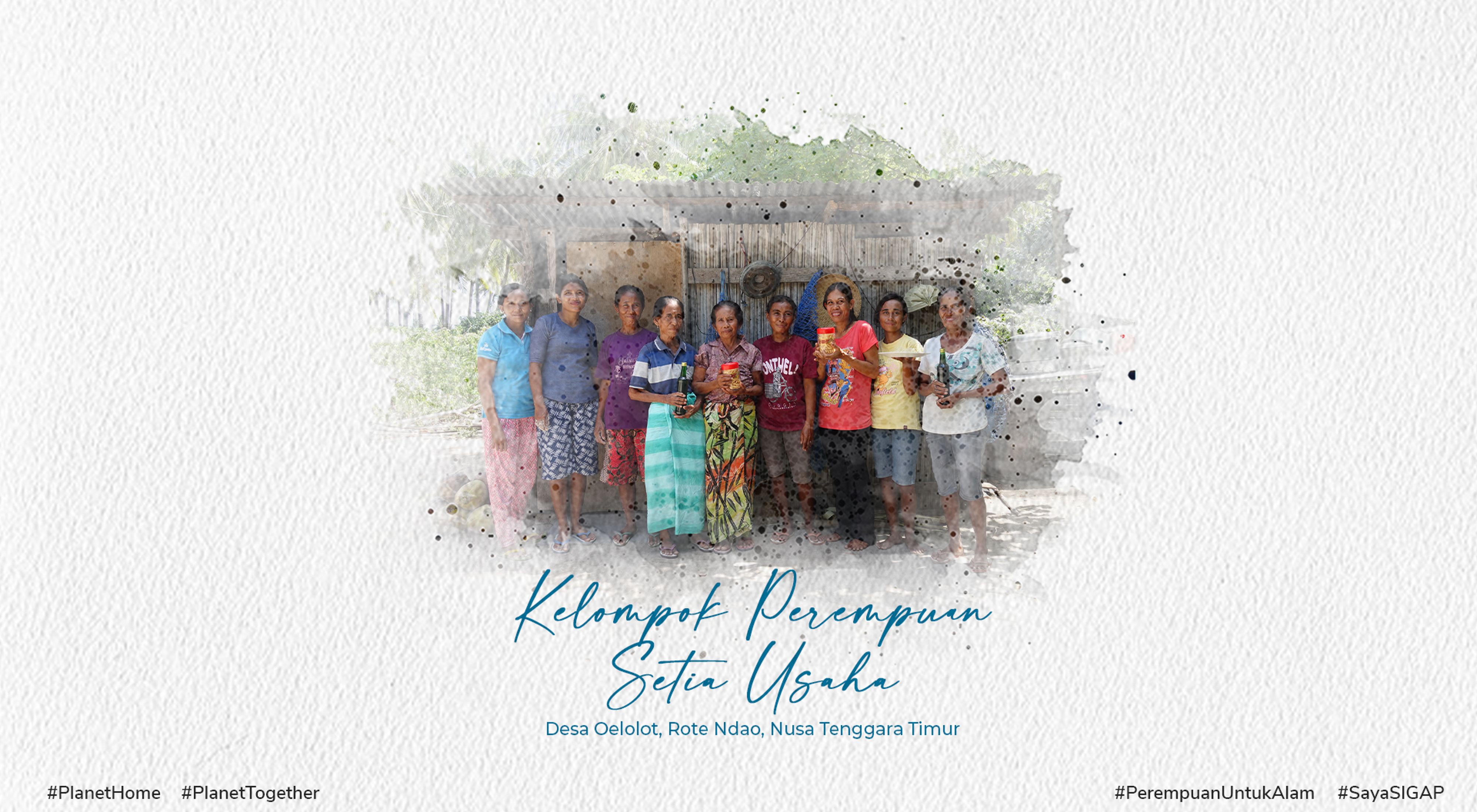Setia Usaha Group Business and Seaweed Cultivation – The Reconnection between Man and Nature
The village of Oelolot and seaweed shares the same identity. The village, which is located in West Rote District, Rote Ndao Regency, East Nusa Tenggara (NTT) Province, is one of the centers for seaweed cultivation. For the residents of Oelolot Village, seaweed cultivation, which was initiated in 1999, has become the main source of livelihood and has succeeded in improving the local economy. Seaweed cultivation area continues to expand. However, it turns out that increasing land does not necessarily increase profits. In fact, there is a decrease in the productivity of seaweed.

Seaweed quality is strongly influenced by the health of the aquatic ecosystems. In practice, a lot of land for seaweed cultivation overlaps with the presence of other important biota in coastal areas such as seagrass beds, mangroves, and coral reefs. Many mangrove trees are taken for their wood to be used as stakes in demonstration plots for seaweed cultivation, these stakes are planted in areas around coral reefs. Unconsciously, this activity actually damages vital coastal ecosystems, both coral reefs, mangroves, and seagrass beds.
In addition, the main factor causing the failure of seaweed cultivation is the limitation of cultivated seaweed seeds that will be used in the next cycle due to the absence of good seaweed seed management. The repeated use of seeds is one of the causes of the decline, both in quality and quantity, making them vulnerable to extreme environmental conditions and disease.
Ecological issues are increasingly threatening with climate change. As farmers, the people of Oelolot Village depend on weather conditions. Climate change that causes erratic weather makes them unable to determine the planting season, thus affecting their livelihoods and economic conditions.
In order to adapt to natural conditions and at the same time determined to carry out a more sustainable seaweed cultivation, community groups who are members of the Setia Usaha Group are trying to change conditions. Consisting of 13 women and 4 men, this group received assistance from Yayasan Konservasi Alam Nusantara (YKAN) and partners.

Since 2017, YKAN and its partners have created a test plot for a seaweed nursery in Oelolot Village, together with the Setia Usaha group. This effort is expected to be able to answer the problem of the availability of quality seaweed seeds and increase the capacity of farmers to adapt to changes in seasonal patterns in seaweed cultivation so as to increase the income of seaweed farmers. In addition to the technical side of seaweed cultivation, efforts to increase knowledge about the importance of coastal ecosystems are also carried out.


The demonstration plot area owned by this group is about 35 m². The type of seaweed developed is sakhol. From the demonstration plot of a well-managed nursery, the Setia Usaha Group is no longer experiencing a shortage of seeds. In fact, seaweed farmers from other villages actually buy seaweed seeds from this group at a price of IDR 250,000/bag. The Setia Usaha group also sells dried seaweed at a price of Rp. 10,000/kg. Usually they sell the dried seaweed to collectors in the village.
Through the implementation of sustainable seaweed farming practices, rural communities have begun to realize the importance of coastal ecosystems for the sustainability of seaweed cultivation. In its development, YKAN and its partners also provide training for the processing of various kinds of foods such as syrup and various cakes from seaweed. “Through this activity, we have come to understand about seaweed cultivation that is environmentally friendly. In addition, we were also taught how to manufacture food products made from seaweed. This is a very useful knowledge,” concluded member of Setia Usaha Group, Mince Ndun.



Rote Ndao Regency is one of the largest seaweed producing centers in Indonesia. Indonesia itself is listed as the second largest seaweed producer in the world after China (KKP, 2021). The application of sustainable seaweed cultivation practices opens a big gap for the economic improvement of coastal residents while preserving the natural habitat of coastal areas.
The efforts of the members of the Setia Usaha Group paid off when this sustainable cultivation practice requires to be highlighted. The seaweed farmers managed to position into a better financial condition, so they could send their children to a higher education level. The Setia Usaha Group's reconnection with nature and their persistence in dealing with the impacts of climate change have been rewarded by a gift from the universe, which never disobeys those who are loyal.


